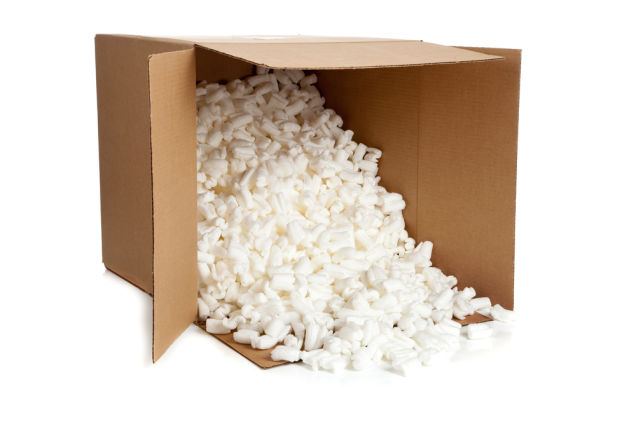We’ve all been there. You’ve ordered a new gadget, and upon opening the box once it has finally arrived, you have to claw through a boatload of packing peanuts that wind up scattered all over the floor. Then when you’re done marveling at your new toy, you have to pick up the pieces of polystyrene nonsense to throw them out. Do know that you shouldn’t toss those foam peanuts to the curb right away, because they may be the key to a new generation of lithium-ion batteries.

A team of researchers at Purdue University have developed a heating process that converts these shipping leftovers into anodes (where lithium ions are stored during charging) made from carbon. Alongside eliminating waste, this idea could lead to batteries that recharge much faster. Although carbon anodes are only a tenth as thick as their commercially available counterparts, they don’t produce as much electrical resistance.
The idea was born after research associate, Vinodkumar Etacheri, said there were too many packing peanuts when he and his team were setting up their laboratory at Purdue. Instead of wasting them, his teammate, Professor Vilas Pol, began thinking up a useful way to utilize them.
Pol’s suggestion led to the group coming up with a potential eco-friendly conversion of the waste. That’s when they discovered that the anodes made from the packaging materials charged batteries faster and had a higher capacity compared to existing graphite anodes used in commercial batteries.
“Although packing peanuts are used worldwide as a perfect solution for shipping, they are notoriously difficult to break down, and only about 10 percent are recycled,” Pol said.
Although the process is still in its development stage, the lab-made batteries were able to be charged for about 300 times before some capacity was lost. A higher number is required for devices that will be used every day for a few years. Once perfected, the technology will allow smartphones to charge much quicker, and packaging peanuts will just turn into more batteries.
Story via Engadget
Advertisement
Learn more about Electronic Products Magazine





